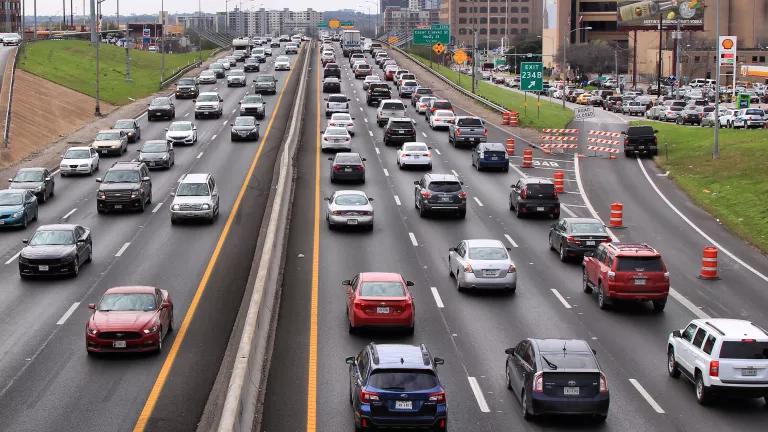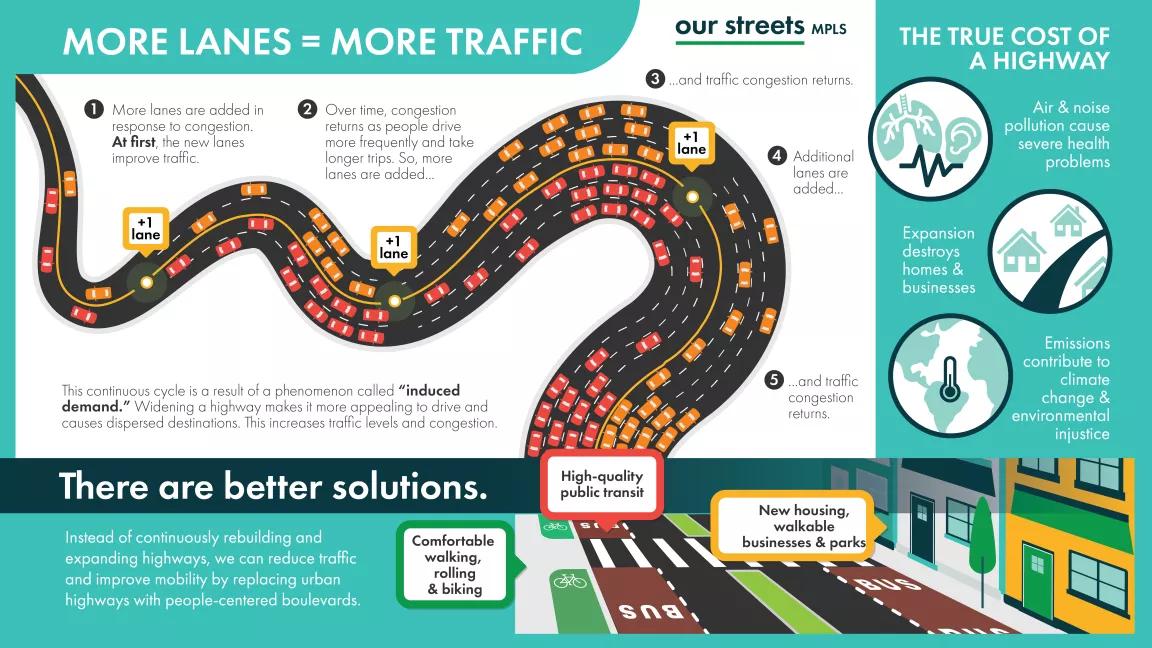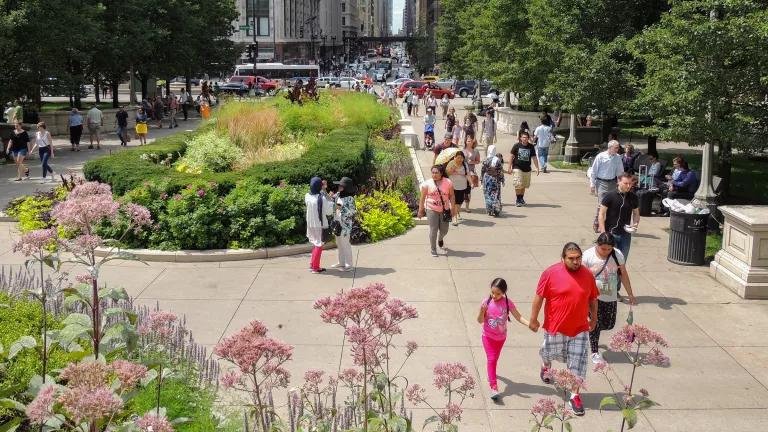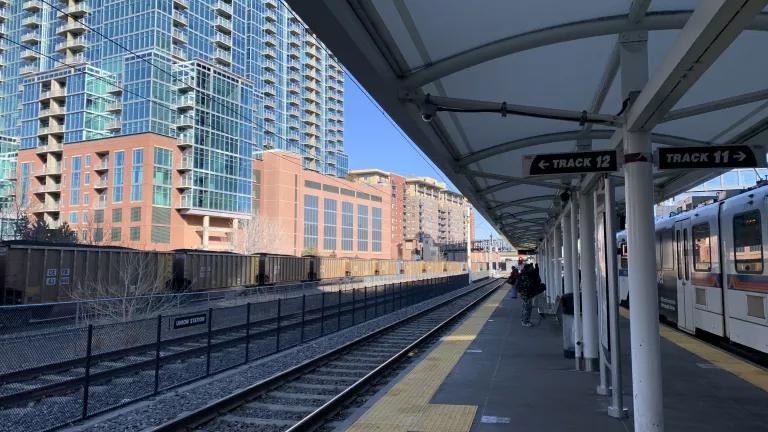Americans Know Expanding Roads Doesn't Fix Traffic
A new survey shows that most Americans know that expanding roads doesn't fix traffic. Why do states keep pursuing these harmful projects?

Traffic on Interstate 35 through downtown Austin.
Credit: Larry D. Moore, CC BY-SA 4.0, via Wikimedia Commons
Automobile congestion is as old as the automobile itself - people have been getting stuck in traffic since the earliest days of the car. Governments have been trying to fix traffic for just as long. But 100 years later the same old solution - more and bigger roads - just leads to more driving.
A new survey commissioned by Smart Growth America, America Walks, and the Natural Resources Defense Council shows American voters have caught on faster than politicians to the reality that wider roads cause more congestion. Two thirds of survey respondents strongly or somewhat agreed that “expanding highways takes years, causes delays, and costs billions of dollars” and “widening highways attracts more people to drive, which creates more traffic in the long run.” One third identified enhanced public transit or new sidewalks as the best long-term solutions to traffic. On the other hand, just one in ten respondents thought adding lanes was the best solution, and even fewer thought new highways and freeways were the best solution.
The survey, conducted by Hattaway Communications, shows that transportations investments made by state governments are often out of step with Americans’ attitudes towards solutions for reducing traffic. A 2021 Washington Post report estimated that state departments of transportation (DOTs) are spending approximately $19 billion a year on highway expansions. These projects are sold with promises of reduced congestion and justified by the idea that Americans want more roads. The survey found that this idea isn’t true.
The superficial logic behind roadway expansions is that there are too many cars in too little space, so making more space should help. There are a few problems here. The first is that this solution does not work because of a phenomenon called induced demand. When a new road is built or an existing road is expanded more people drive, more fossil fuels are burned, and overall congestion stays the same or even gets worse. Transportation is the largest source of carbon emissions in the country, and more driving moves us further from our climate goals.
In addition to leading to more driving and carbon emissions, road expansions come with unacceptable human costs. Highways have been routed through communities of color since the dawn of the interstate system - often with the deliberate goal of destroying these communities. Vulnerable people are still fighting displacement, and those who remain in their neighborhoods are exposed to pollution that leads to elevated rates of asthma, heart disease, and other life-threatening medical conditions.
The lesson from this survey is clear: Americans are ahead of their leaders when it comes to recognizing the path forward on congestion. The 2021 Bipartisan Infrastructure Law roughly doubled federal transportation spending, but if we do not change how and where this money is spent then congestion and pollution will only get worse. Money from the law is distributed to state DOTs, which then make the decisions on how the money is spent - often relying on outdated assumptions about travel and rarely incorporating meaningful community input. DOTs can continue to expand highways, or they can put the money into sustainable transportation. This choice will mean the difference between making progress on our sustainable transportation goals and exacerbating the status quo.
Highway expansions are bad for people and bad for the environment. Americans recognize that there is a better path forward. With a once-in-a-generation amount of money flowing to state DOTs, we must take that better path now.





